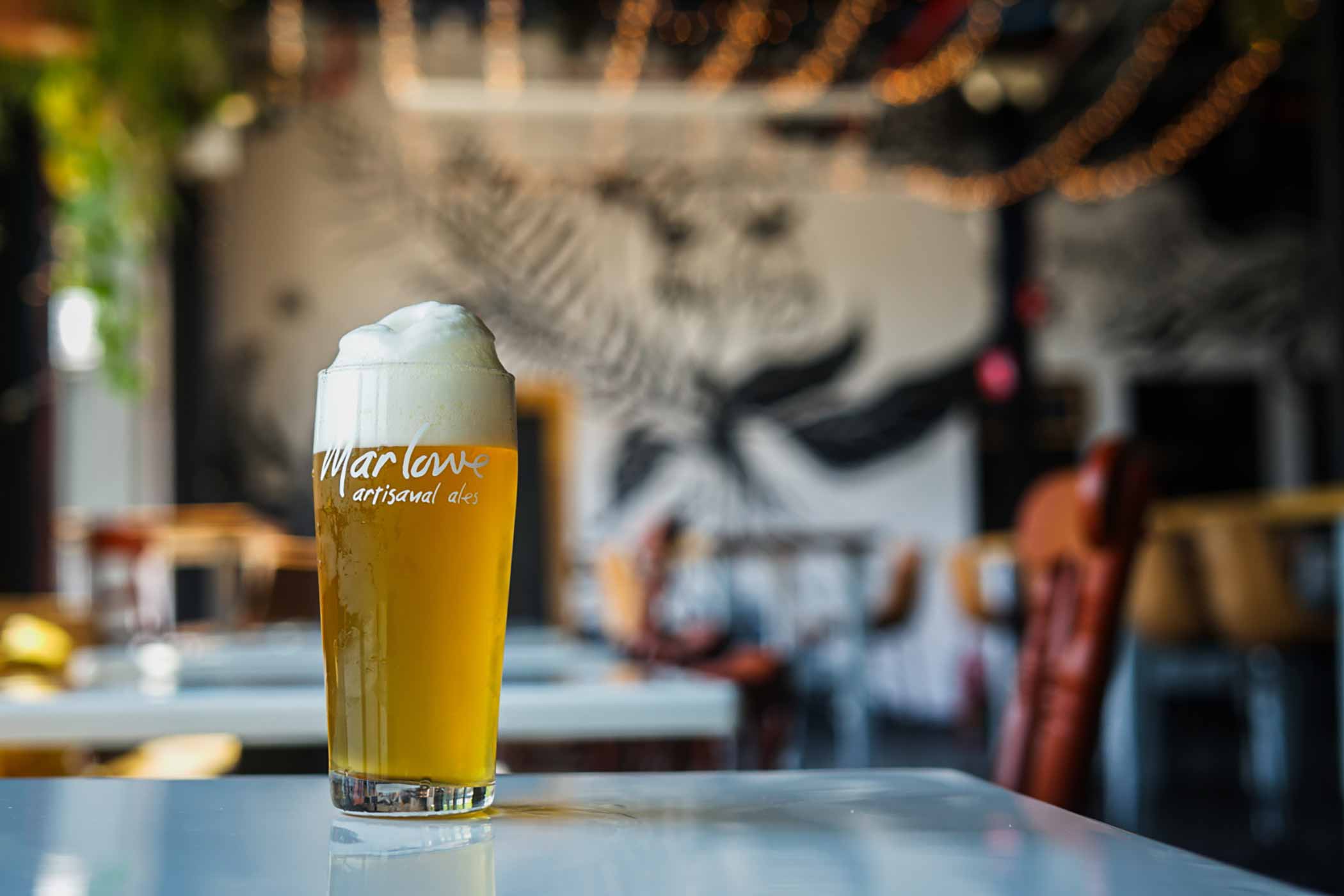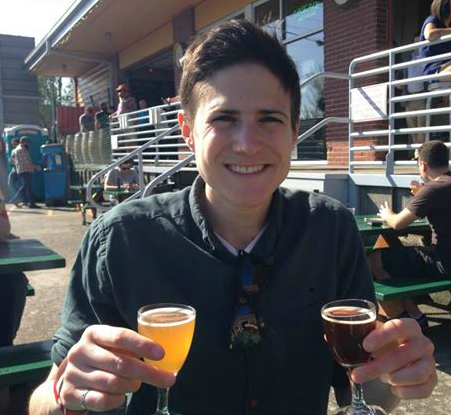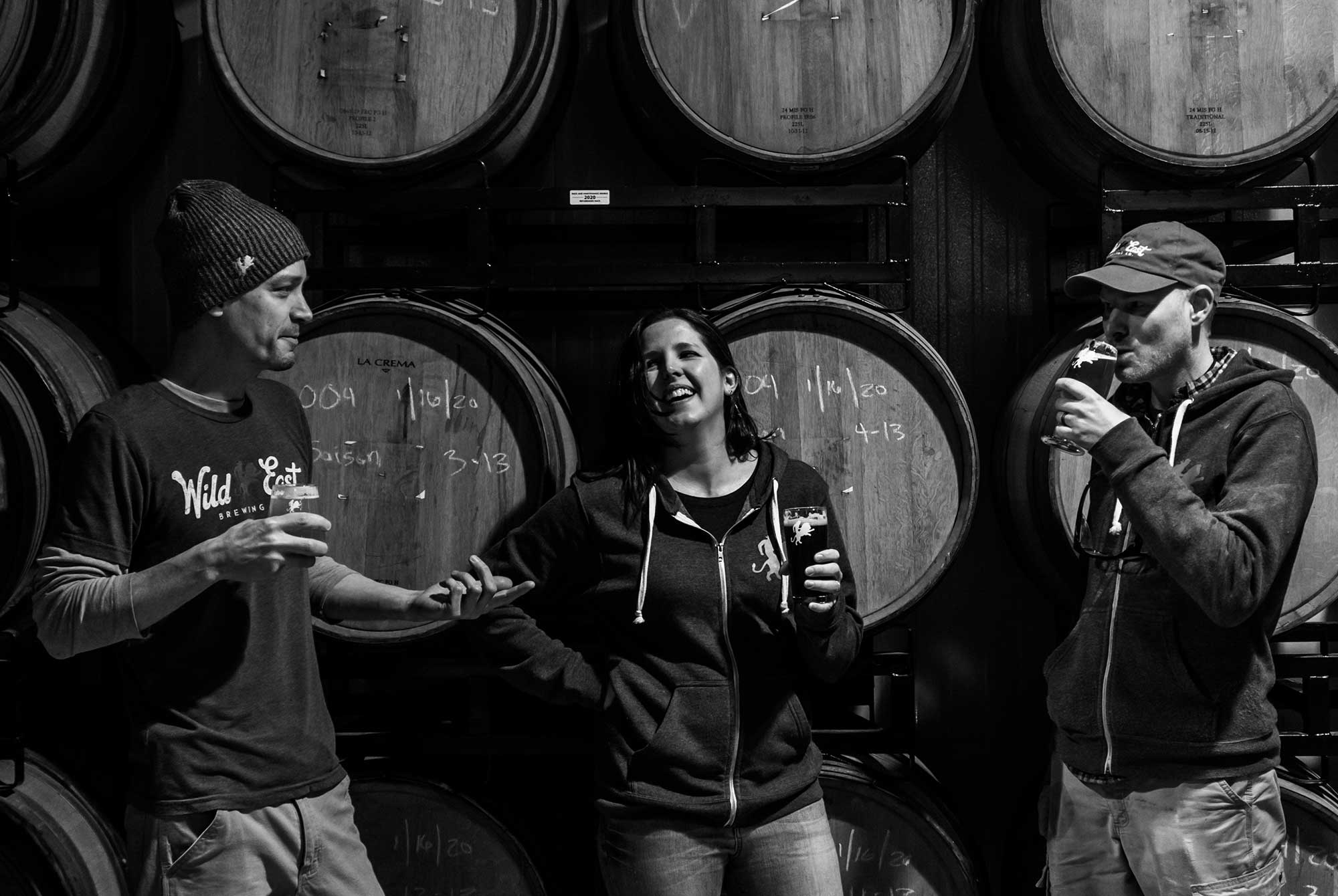Shop
A Signature in Every Sip: The Story of Marlowe Artisanal Ales
Pretty good beer.
Like This, Read That
The M curves sharply, an extra leg on the left side bent like an arm pulling on a beer engine. The lowercase “a-r-l-o-w-e” flows softly and freely like a leaf floating down a stream. It’s a soft signature, a combination of letters pulled together like stitches patching up a pair of jeans. You’ll find the word Marlowe on everything at this Upstate New York brewery, including proudly plastered across the wall in the taproom.
During our conversation, owner and founder Zac Ross pauses to gaze at the letters. Something, he tells me, he does every day.
“Every single time I do,” he shares, “I’m reminded to refocus.”
Named after Ross’ grandfather, Marlowe Artisanal Ales carries on a family legacy. A composer, Marlowe wrote the music played at Ross’ parents’ wedding.
When Ross first started thinking about starting his own beer brand, he struggled to come up with a name, tossing around ideas with his family.
His mom suggested Marlowe.
Then, while going through boxes full of old memorabilia at their parents’ house, Ross’ younger brother found the actual piece of music he composed. At the bottom, Marlowe had signed his name.
“That was it,” Ross remembers.
Now, Marlowe the brewery has become Ross’ own piece of music, a soulful series of beers compiled into one harmonious sip-phony.
For Free
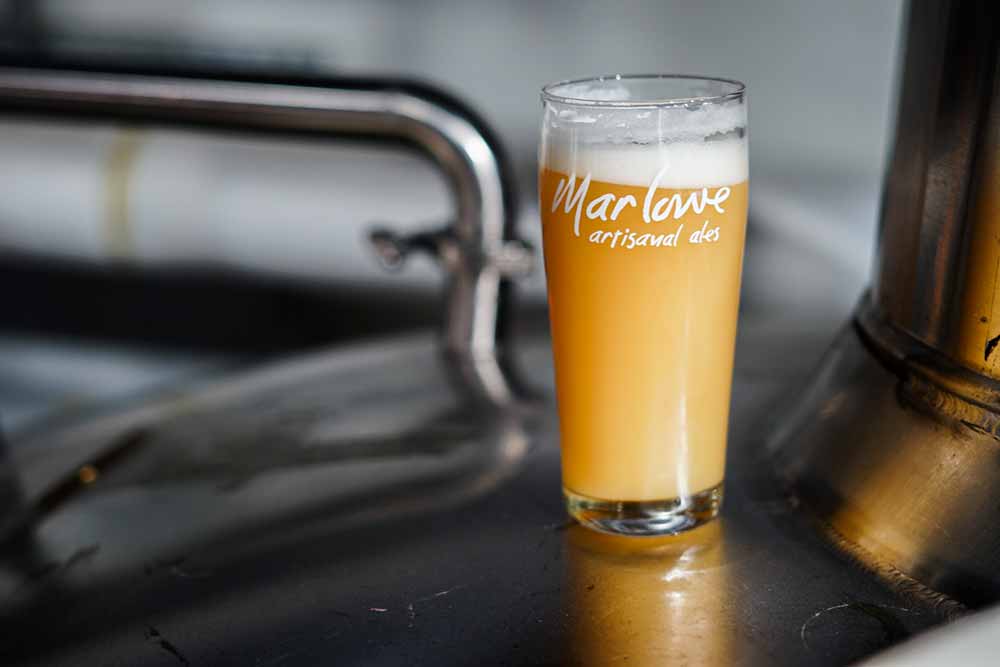
Photography courtesy of Marlowe Artisanal Ales
When Ross and his brother walked into Voodoo’s first taproom on its opening day in 2012, he hadn’t brewed a single beer. Sure, he loved beer, but for the freelance journalist working for Runner’s World, drinking beer was as far as he’d gone. All he knew, though, was that he loved it.
As they sat drinking beers, Ross says his brother told him, “You should work here.”
Flagging down someone from behind the bar, Ross’ brother pitched them.
They responded, “Everyone would love to work here,” chuckles Ross. “So I told them I’d work for free.”
Voodoo asked for Ross’ phone number and hired him.
Working sans salary or paycheck at Voodoo for six months, Ross picked up all the odds-and-end jobs, eventually earning a full-time, paying role.
“My official job title was Zac of All Trades!” he laughs, noting Voodoo even printed that title on his business cards.
Through his job at Voodoo, Ross met some folks from Richmond who told him about a new brewery opening—The Answer.
“I ended up taking a leap of faith,” shares Ross, who moved to Virginia to work as The Answer’s assistant brewer.
He admits he had a bit of an “identity crisis” down there, even considering leaving craft beer.
Instead, he moved home, taking over as head brewer at Kent Falls. “That’s where I reignited this passion for craft beer and found my purpose for staying,” he says.
When I ask exactly why Ross reignited his spark at Kent Falls, he pauses for a second, considering how he wants to phrase his answer.
“I rebelled pretty aggressively against the beers we made at The Answer—overly fruited sours and adjuncted stouts,” he says. “Alcohol and sugar are unhealthy, addictive substances. … I thought I was morally degrading myself.”
At the working-farm brewery in Kent, CT, Ross found himself on a farm, brewing low-ABV beers with locally grown and sourced ingredients. “Beers that are tied to a sense of place,” he says. “It just really struck a chord with me.”
So much so that when Ross finally had a chance to start his own brand several years later, he centered it around a few key things: local, low-ABV, lovable beers that spoke a universal language.
Beer Is a Universal Language
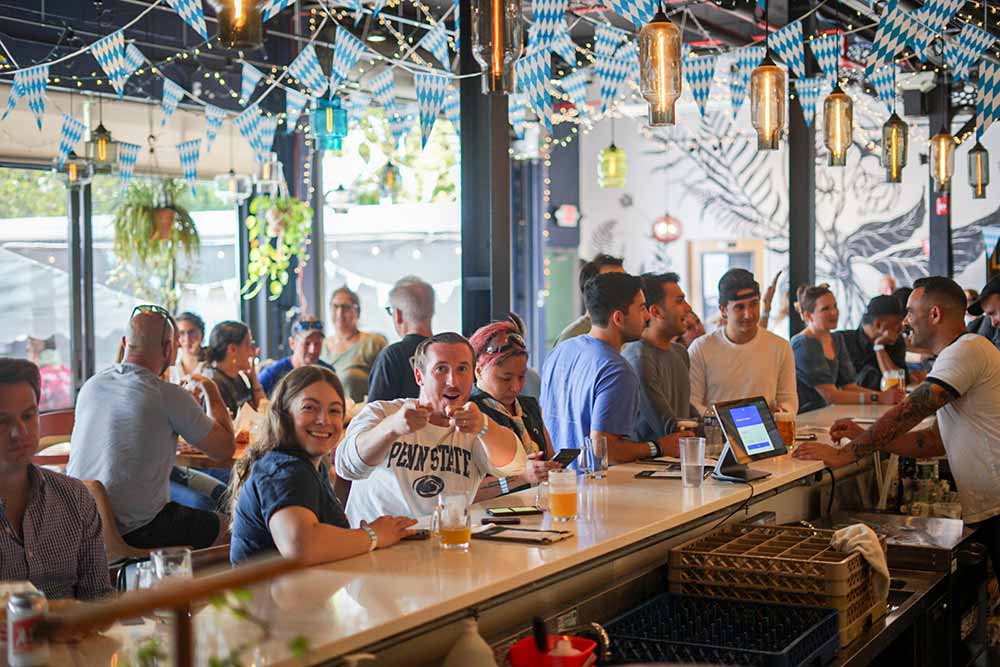
Photography courtesy of Marlowe Artisanal Ales
If Kent Falls brought back the spark, Twelve Percent Beer brought him freedom.
When Twelve Percent asked Ross to be the head brewer for around twenty brands (those like Evil Twin, Root+Branch, Timber, for instance), he accepted on one condition.
He could start his own brand.
Whenever space opened up in a tank, Ross brewed a Marlowe beer.
The brand took off after two or three years, so Twelve Percent asked him to step back and focus on Marlowe full time.
Admitting he got a little bored, Ross says, “I was losing my mind.”
Eventually, he left Twelve Percent to open his own taproom.
After a brief stint in downtown Nyack, Ross cut the ribbon on Marlowe’s current brick-and-mortar in the old Decadent spot in Mamaroneck, NY.
With its hand-painted chairs from Goodwill and framed beer boards (also from Goodwill), the taproom has that “mix-and-match kitchen table sort of feel,” says Carla Waclawski, who joined Marlowe in 2022 and does everything from designing the labels to painting a big mural on the brewery’s wall to cellaring, packaging, and whatever else needs a hand.
The taproom has become a gathering place in Upstate New York, a place where you’ll find just pretty good beer (Marlowe’s words, not ours), good vibes, and occasionally beers on cask. “We can’t keep them on,” says Ross, “which is the best feeling in the world!”
All contribute to what Ross loves so much about brewing. “There is no more universal language than craft beer,” he says. Even with friends who don’t speak the same language, Ross can connect with them over beer and food. “That’s language enough,” he says. “Beer has been around for a millennium for that purpose.”
He adds, “That’s why we’re here.”
When Marlowe first started, Ross brewed lower-alcohol, highly drinkable beers—ESB, American pales, and pale lagers, for instance.
These days, while Ross says that it is still a focus, he doesn’t constrict himself to a single style.
“We just want to make beer that people can sit and drink while having a great conversation,” says Waclawski, who originally went to school for medical art illustration before finding her way to beer because it offered more creativity.
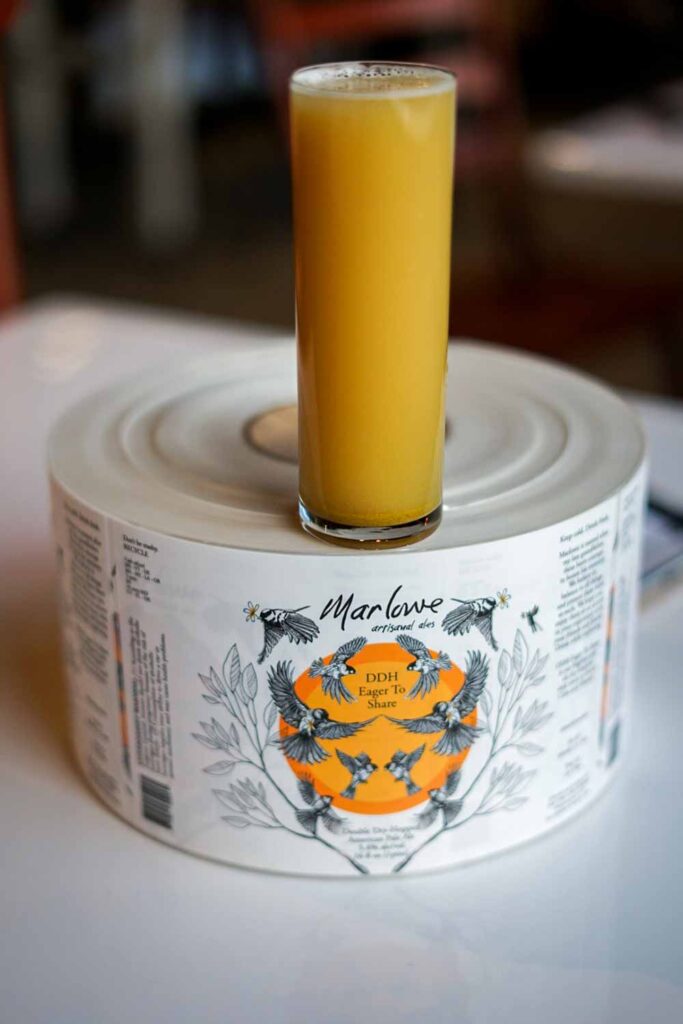
Photography courtesy of Marlowe Artisanal Ales
That means you’ll find everything from English styles to double IPAs to German and Czech lagers to dark lagers.
For instance, My Little Shadow, a German-inspired dark lager that is Waclawski’s favorite label. She drew her cat, Max, in the front room of her apartment. “It’s simple,” she says, “but it makes me feel good.”
While Ross frequently changes up the tap list at Marlow, the one beer that never changes and always makes people feel good is Eager to Share.
It’s the first beer Ross brewed for Marlowe, and a flagship.
Ross brewed this American pale ale as an ode to the Hill Farmsteads, Sierra Nevadas, and Trilliums who made old-school pale ales their cornerstone.
“But none of them were making a modern pale ale,” says Ross, who makes Marlowe’s version with Citra and Mosaic, along with an aggressive dry-hop—three pounds per barrel.
Ross’s true test and point of pride with this beer is when “somebody cracks open a can, and I can smell it across the bar.”
Incredibly smooth and easy drinking, Eager to Share doesn’t crush your palate like an IPA or DIPA, but offers a maltier balance and body that welcomes the hops in like a neighbor beckoning you inside out of the rain.
“We were just super eager to share it,” says Ross, who gave the very first can to his grandmother for her ninetieth birthday.
It’s still her favorite beer. “Her automatic number one,” laughs Ross, who shares that love. “I drink a whole ton.”
A Brown Ale, a Pilsner, and an IPA Walk Into a Bar
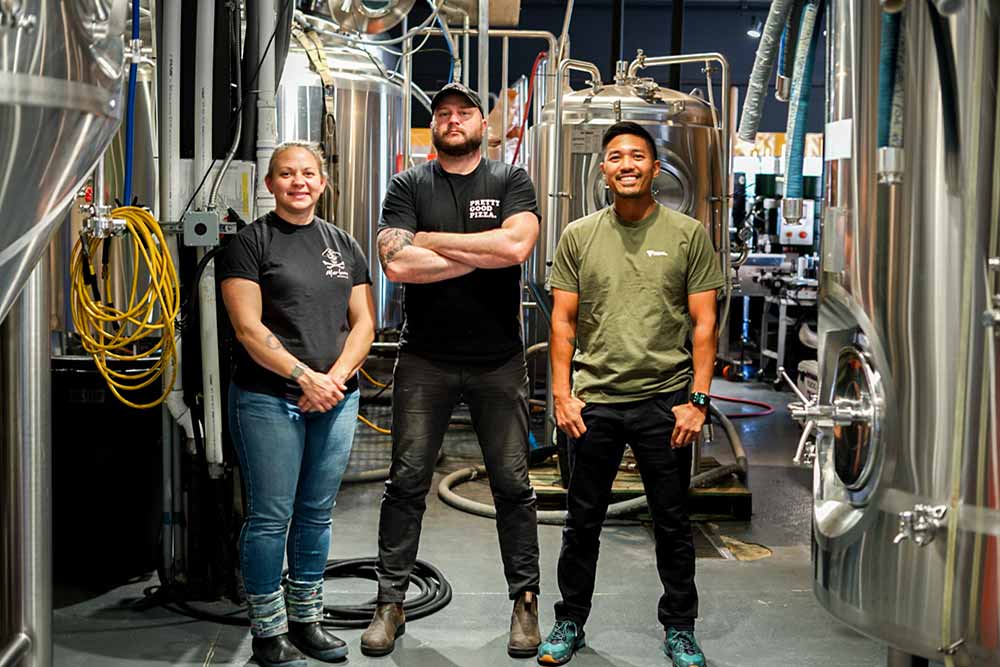
Photography courtesy of Marlowe Artisanal Ales
The joke’s on us, really.
When Ross started working in breweries, he said everyone had the same core lineup—a pilsner, IPA, and brown ale, because that’s what they homebrewed.
“Brown ales were the easiest style to make,” Ross explains.
You’ll find all three at Marlowe. But these aren’t some homebrew batches.
Like everything at Marlowe, they’re humble yet extraordinary.
The Brown Ale
Inspired by a brown ale from Hill Farmstead called George, Ross sought to make a beer almost like a porter but still light enough to be considered a brown ale. “I just wanted to drink that more often,” he admitted.
The Broken and the Dead absolutely took off, winning the best brown ale in the country at the Untappd Community Awards two years in a row. (And last year, we named it one of our “Top Beers We Drank in April.”)
“It’s so wild to me,” Ross says with surprise, admitting he already has his eyes on a three-peat. “I never thought we would be the ‘Best Brown Ale Brewery’ ever.”
When asked why he thinks The Broken and the Dead popped off, Ross feels it fills a void.
The lower-ABV, highly sessionable yet malty beer gives people who want a stout that dark flavor without the potential hangover.
Ross starts with a base of Maris Otter to give it that nutty English-style grain bill before adding a little chocolate rye malt “to give it a hint of spice,” he says, and some honey malt, crystal malt, and English malt. “That just gives this biscuity, sweet body, but still allows the beer to finish semi-dry, so it’s not overbearingly sweet, but still has a ton of complexity.”
Hopwise, Ross says this year he included his favorite-ever blend of hops—Centennial and Cascade sourced from the New York-based Hop Guild. “It was grown in the state,” he explains, noting he only brews this brown ale once a year. “They were some of the best hops we’ve used all year.”
This humble brown ale is almost emblematic of Ross’ own revival. Named after a short story he wrote in college, The Broken and the Dead is everything he stands for as a brewer—simple things perfected.
If the brown ale is Ross’ passion, then his Czech-style lager is his obsession.
The Pilsner
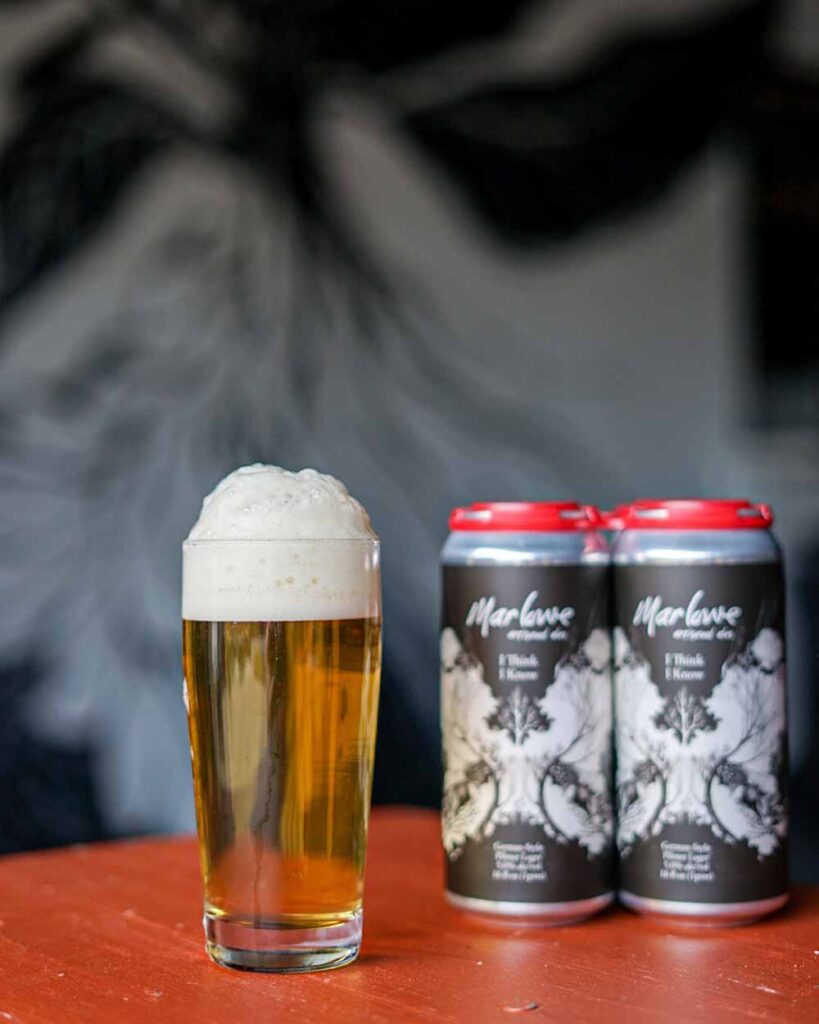
Photography courtesy of Marlowe Artisanal Ales
“I’m not super happy with it,” Ross shares.
Despite being a fan favorite and the second-highest-selling beer week in and week out, I Think I Know is actually a beer Ross feels he could improve the most.
“Major tweaks are happening,” he says.
It’s a beer that lives up to its name.
“I think I know what I’m doing,” says Ross. “I think I know this is going to be good.”
Ross feels this beer is about progressions, learning, tweaking, and improving with each batch.
For the next one, Ross says he’s swapping out the current grist of Munich malt for a super high-end German pilsner malt. And he’s changing the hops—subbing in Hallertau Mittelfrüh and Perle.
“That’s Marlowe,” says Waclawski, who thinks I Think I Know already tastes great. “Zac is always making sure it’s the best it could possibly be.”
The IPA
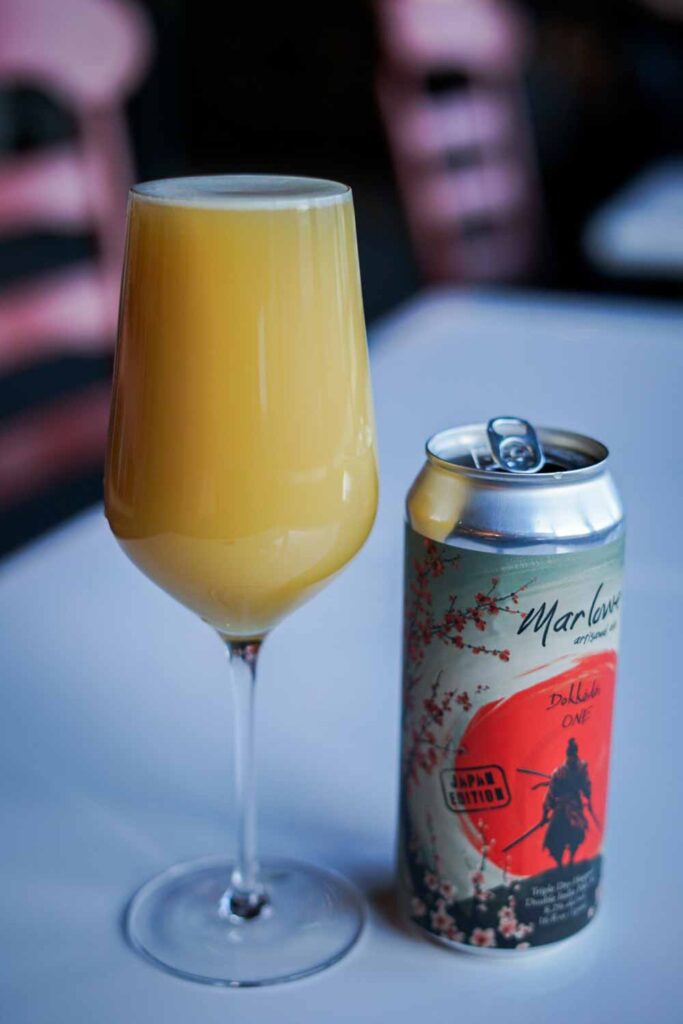
Photography courtesy of Marlowe Artisanal Ales
Double IPA, actually. Of which, Ross admits, is not something Marlowe makes a ton.
He counts eleven in the brewery’s six-year history.
But he’s pretty excited about their current Dokkōdō series, a progression of beers based on Japanese artist and writer Miyamoto Musashi’s collection of twenty-one principles that outline a path to better yourself.
Ross wants to translate each principle into liquid.
Dokkōdō: One is “Accept everything just the way it is,” so as champions of low-ABV, highly drinkable beers, Ross says he recognized that the world is shifting to double IPA.
“We’re just going to do it the way people want,” he says.
Dokkōdō: Four is “Think lightly of yourself and deeply of the world.”
To capture this principle, Ross wants to make a double dry-hopped DIPA and distribute a significant portion. “We’re thinking less with our egos and more of the craft world,” he says, “so more people can try it.”
Just Pretty Good Beer for the People
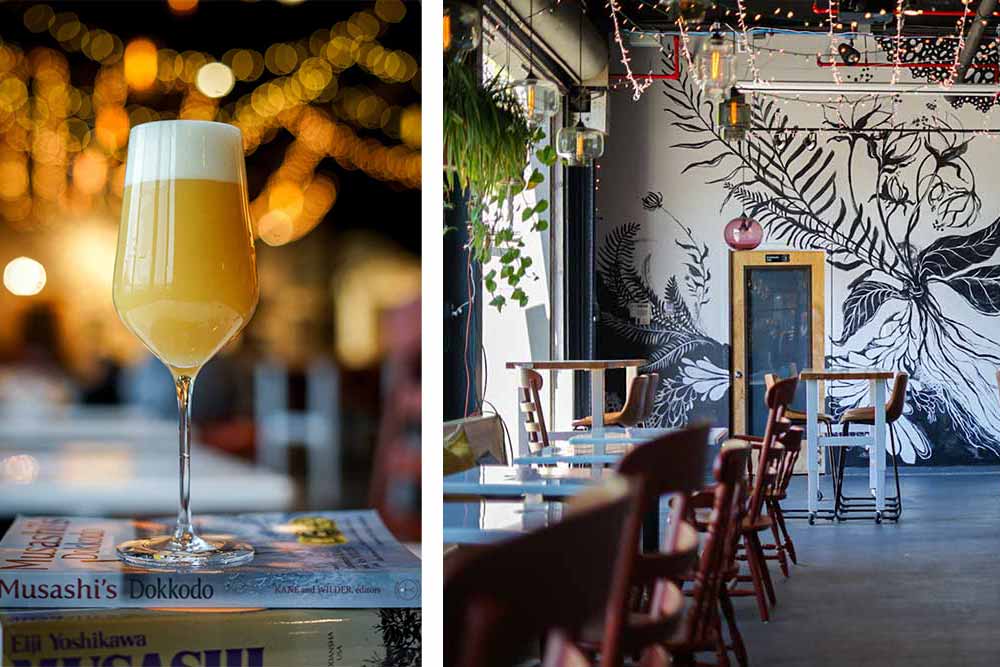
Photography courtesy of Marlowe Artisanal Ales
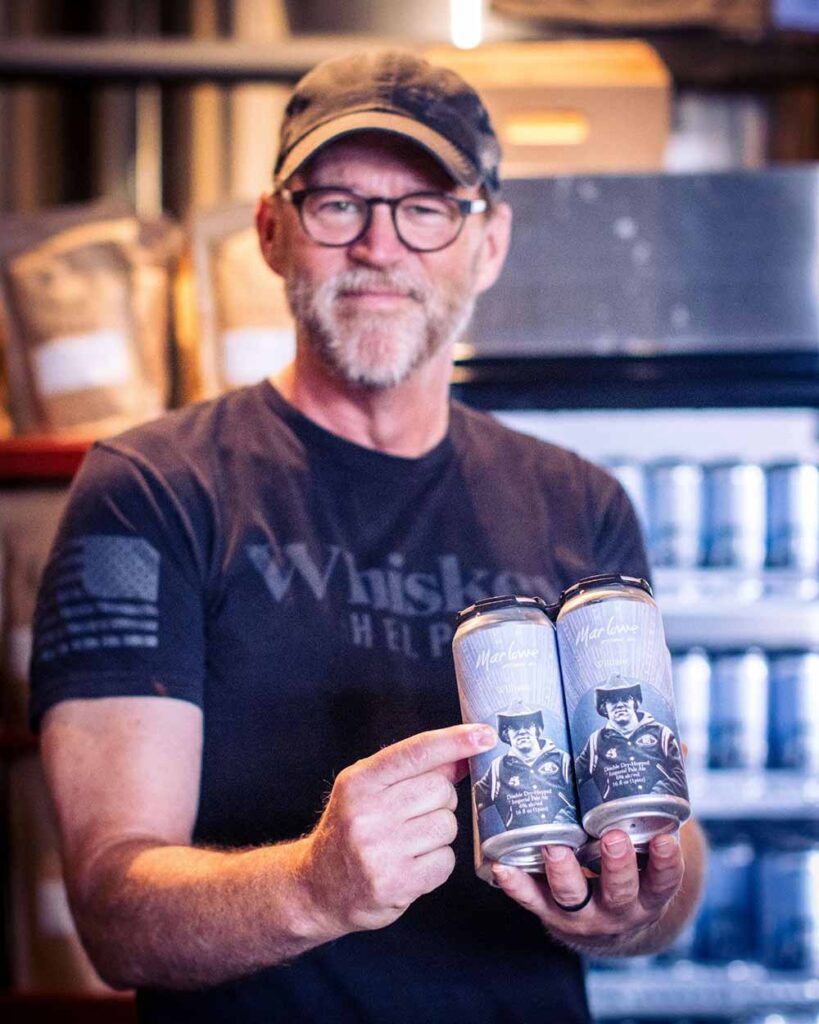
Photography courtesy of Chris Weiss
When Ross first started Marlowe, he followed a motto, “No hype, no gimmicks, just beer.”
These days, Ross says that the original ethos has evolved into something even simpler, “just pretty good beer.”
He laughs and continues, “We’re not super pretentious people. We’re just trying to make beer the best we can and give it to as many people as possible.”
For the old Runner’s World freelancer who first stepped foot into craft beer at Voodoo on its opening day, that’s really what it’s all about.
It’s not a curvy, looping, ostentatious signature at the end of a letter.
It’s a straightforward M followed by a soft swooping “a-r-l-o-w-e.”
A signature in every sense of the word that means more than its letters.
Because with each pen stroke, Ross sees a grandfather writing a piece of music for his family’s wedding.
As a brewer, with each carefully crafted can he puts his name on—his family’s name on—Ross almost poetically signs off.
“We’re just trying to do everything as well as we can,” he says, “because we are passionate about perfecting ourselves and our beer.”

